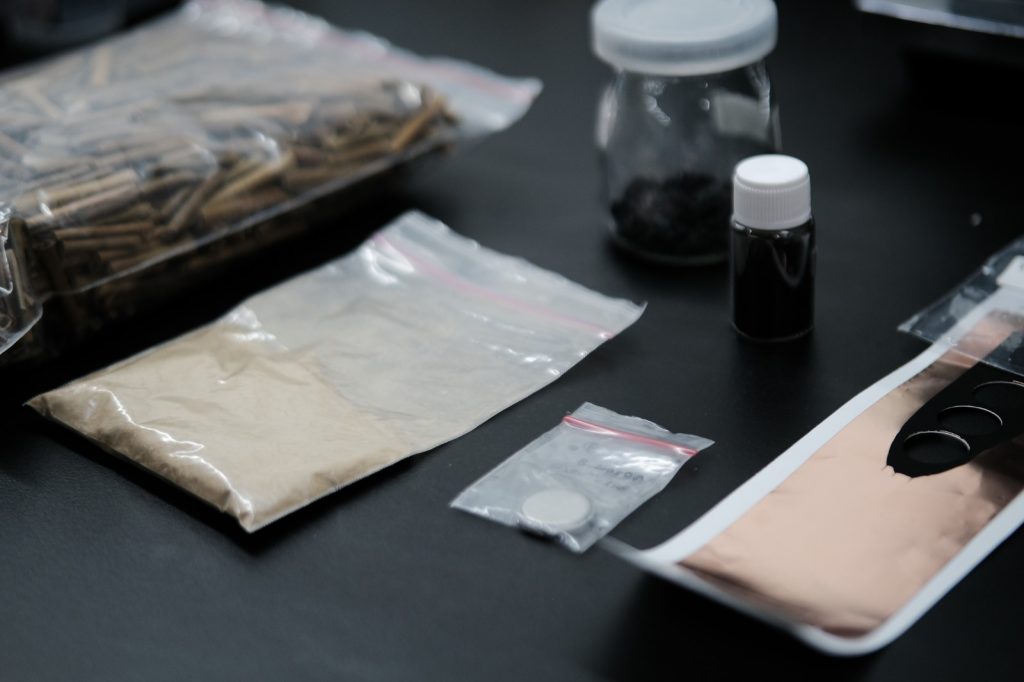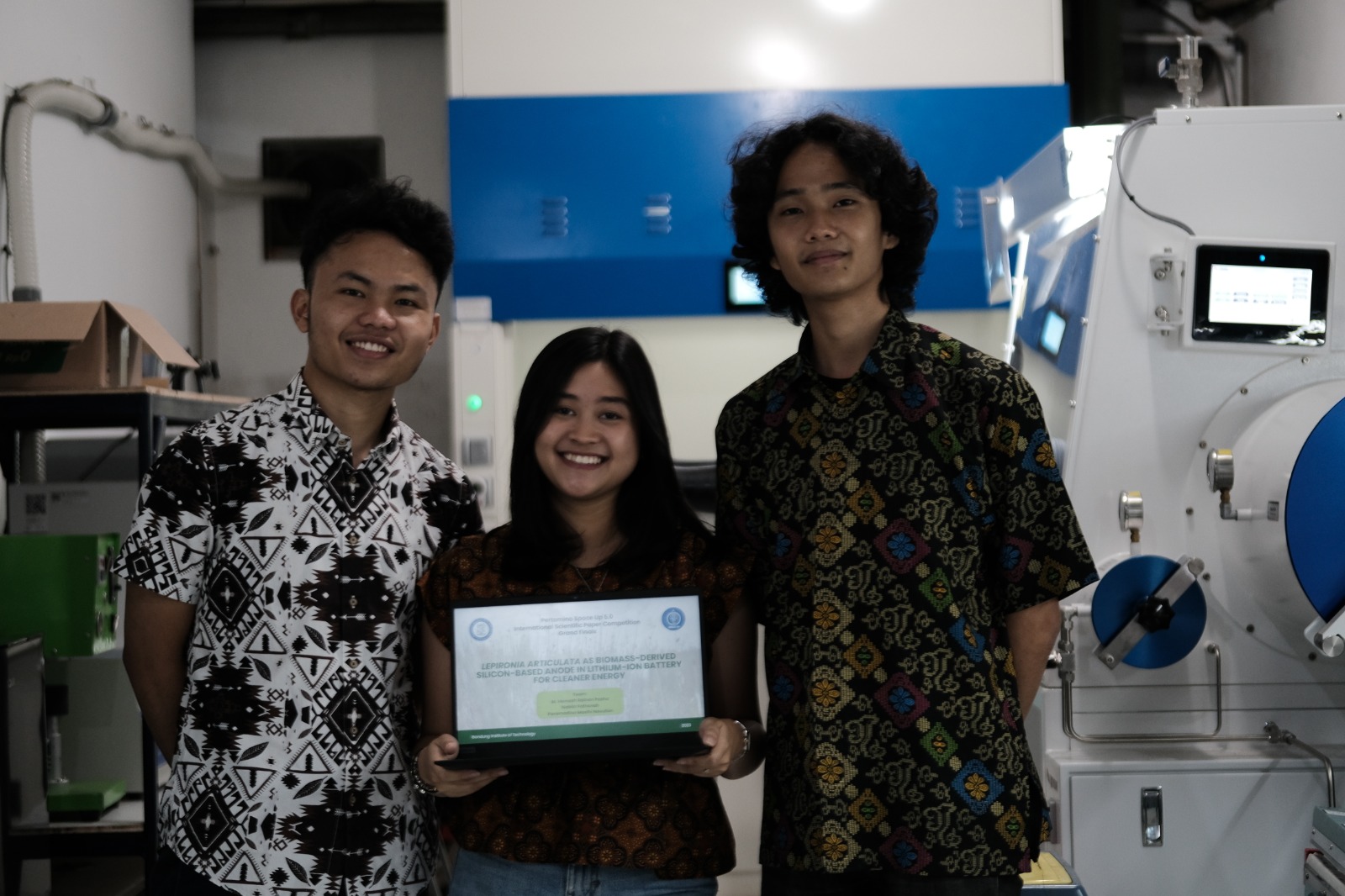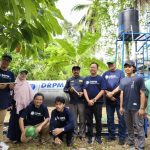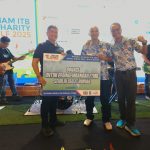Collaboration between Materials Engineering and Environmental Engineering Students in Developing Environmentally Friendly Li-ion Battery Anodes
Bandung – A team of students from the Bandung Institute of Technology (ITB) achieved first place in the International Scientific Paper Competition held by Pertamina University in March 2023. The competition saw participants from various universities around the world.
The winning team, consisting of M. Hamzah Raihan Pasha (MT’19), Paramadina Masihi Nasution (MT’19), and Nabila Fathonah from Environmental Engineering (TL’19), focused on the sub-theme “Affordable and Clean Energy.” Their paper discussed Indonesia’s efforts to achieve renewable energy goals and reduce greenhouse gas emissions.
Two material engineering students, M. Hamzah Raihan Pasha (MT’19) and Paramadina Masihi Nasution (MT ’19), were involved in research on silicon-based anodes for Li-ion batteries. Under the guidance of Dr. Afriyanti Sumboja, they conducted their research at the Materials Electrochemistry Laboratory (MEL), a laboratory at ITB specializing in Li-ion battery development.
Initially, their research was purely academic, but upon discovering the competition opportunity, they decided to participate. “We wanted to find a material solution with greater capacity than the current commercial batteries available. One of the potential materials is silicon extracted from biomass,” said Paramadina Masihi Nasution, a team member.
There have been problems keeping up with the hardware development schedule. They extracted silicon from biomass and tested its advantages compared to commercially used materials.
To validate that the use of silicon extracted from biomass is more environmentally friendly and cleaner, the material engineering students collaborated with Nabila Fathonah from Environmental Engineering (TL ’19).
“We needed validation from another department to prove that the production and use of silicon from biomass is more environmentally friendly than other materials,” added Pasha.
Leveraging her knowledge as an environmental engineering student, Nabila played a crucial role in the validation and control process. She emphasized the importance of considering emissions produced during product manufacturing, including the energy used, to provide an environmentally friendly label for a product.
Nabila also suggested that biomass harvesting processes could offer more eco-friendly alternatives to mining and flotation in graphite extraction phases. Additionally, she recommended considering diverse cultivation options for biomass, empowering local communities through conventional and local cultivation methods.

After conducting the tests, the capacity of the silicon material in the battery reached around 347.37 mAh/g, significantly lower than its theoretical capacity of 4,200 mAh/g. Nonetheless, silicon still outperformed graphite, which has a theoretical capacity of about 372 mAh/g and an actual capacity of around 280-300 mAh/g.
The cross-disciplinary collaboration and knowledge transfer were the key factors in the team’s victory in the competition. This achievement serves as evidence that Indonesian students can compete at the international level. Congratulations to the MEL team for their outstanding performance!







